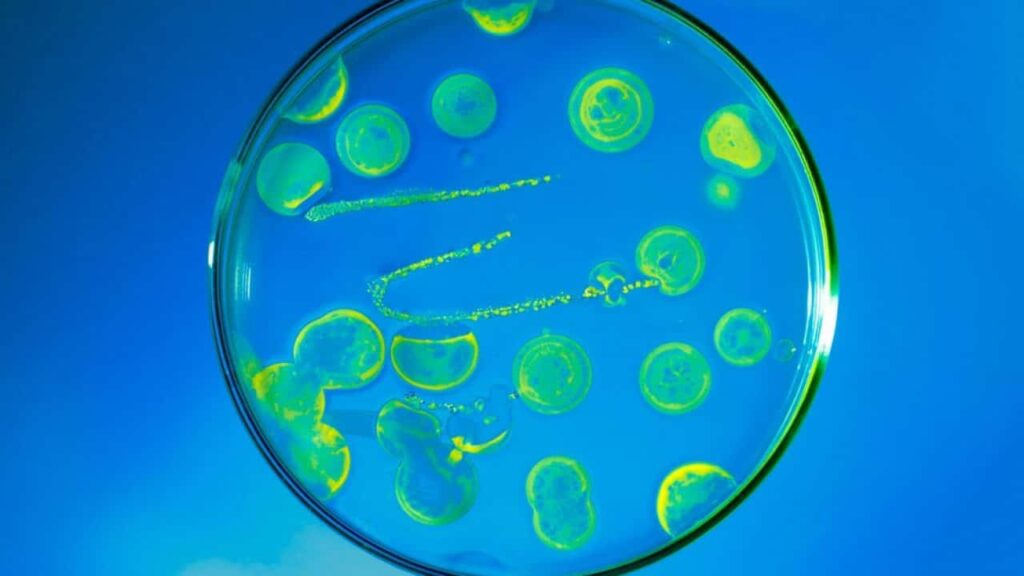We put a lot of energy into battling or avoiding specific germs, such as using antibacterial soaps, overcooking our poultry, and using medicines to treat infection. While most people associate microorganisms with diseases and infections, they are vital to human health. So what’s the connection between microorganisms and our health? probioticseverything.com microorganisms and our health
A broad array of microorganisms covers all multicellular organisms, including all animals and plants. Microorganisms, often known as microbes, are living organisms that are extremely small (microscopic), such as bacteria, viruses, and yeast. They dwell in enormous amounts and varieties on our skin, in our body fluids, and throughout our digestive tract. We come into contact with innumerable microbes from the minute we are born; at any given time, there are just as many, if not more, single-celled creatures on you as there are cells in your own body! The microbiome is the name given to this collection of microbes that is unique to each human. probioticseverything.com microorganisms and our health
We live in symbiosis with these microbes; we provide them with a home and food, and they in turn provide us with a great deal of assistance. They make certain vitamins and short-chain fatty acids, inhibit the growth of hazardous bacteria, alter the immune system, and boost our health in ways that scientists are only beginning to investigate. Microbes that are more dangerous than beneficial can, however, overwhelm our microbiomes. That’s where probiotics and prebiotics come in handy; we can utilize them to alter the microbiome’s balance and build a system that works for us rather than against us. probioticseverything.com microorganisms and our health
Probiotics
To be classified as a probiotic, a product must include live microorganisms that have been proven to be beneficial at sufficient levels to provide a health benefit, according to the legislation. Probiotics are most commonly found in the form of pills, although they can also be found in certain foods. The live bacteria populate the gut, helping to improve the microbiome’s equilibrium and exerting specialized benefits. probioticseverything.com microorganisms and our health
Bifidobacterium and Lactobacillus bacteria can benefit your health in a variety of ways. Various strains of Bifidobacterium may reduce post-antibiotic diarrhea, reduce the risk of necrotizing enterocolitis in newborns, reduce inflammatory bowel disease symptoms, limit the formation of dangerous bacteria, and improve colon regularity, among other things. Many Lactobacillus strains have comparable potential advantages, including treating inflammatory bowel disease, reducing blood cholesterol levels, avoiding urinary tract infections in women, and managing diarrhea in children. probioticseverything.com microorganisms and our health
Prebiotics
While taking a probiotic is the most obvious strategy to boost the number of helpful bacteria in your gut, you can also feed the good bacteria you already have to help them reproduce and take over a larger section of your microbiome. Certain carbohydrates in our food that we can’t digest are referred to as fiber. There are many different forms of fiber in our food, and some of them are particularly appealing to beneficial bacteria. Prebiotics are these unique fibers. Inulin, a kind of fructooligosaccharide (FOS), is the most well-known and studied prebiotic, though there are others, such as galactooligosaccharides (GOS). probioticseverything.com microorganisms and our health
Prebiotics can be found in a variety of foods. FOS is found in a wide range of plant foods, including whole grains, legumes, tomatoes, bananas, onions, garlic, and Jerusalem artichokes. GOS are less frequent, however, they can be found in breast milk and fermented dairy. Furthermore, many items on the market have prebiotics, most often inulin, added by the producer. When you ingest these foods, the prebiotics stay intact in your stomach and small intestine, while bacteria in your large intestine break down the fibers and use them as fuel (fermentation). This encourages the bacteria to multiply, resulting in larger colonies of beneficial bacteria. probioticseverything.com
There are so many important connections between microorganisms and our health. Before you start taking a probiotic, check with your doctor to see if there is any evidence that the strain you want to take is good for you. When trying to increase your prebiotic intake, go carefully because abrupt changes in the number of fiber foods you eat can induce bloating, discomfort, and other digestive issues. probioticseverything.com







